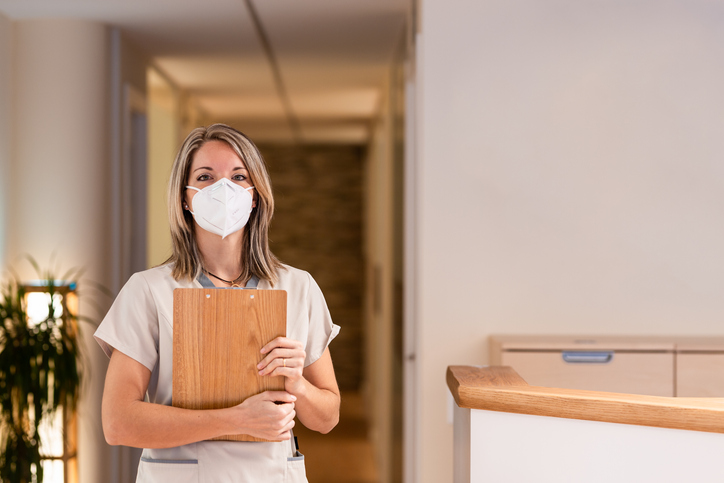In medical offices, many patients come and go, possibly leaving behind and taking with them various types of illnesses and infections. Over the past year, the whole world experienced how fast the spread of diseases can occur with the COVID-19 pandemic, but we also got to hone in on how important it is to have infection control strategies in place within healthcare settings and beyond.
If you’re considering a medical office administration (MOA) career, you’ll need to know and understand more about the role and why infection control is so important within healthcare settings. Here, we explore the basics of infection control and how it applies to MOA careers. Read on to learn more.
The Importance of Infection Control as an MOA
Once you become an MOA, you will be working directly with patients, as you’ll be one of their first interactions upon entering the medical office. Since you will be in such close proximity to patients who may be sick, it will be critical to practice effective infection control so as to avoid spreading infections to healthy patients who may simply be visiting for an annual check-up.

During your program at Medix College, you will learn about the infection process, micro-organism growth, hand washing techniques, autoclave use and sterilization, and the accepted standards and protocols for handling specimen samples. This knowledge will provide you with an understanding of why infection control is so important in this role.
How MOAs Practice Infection Control in Healthcare Settings
Practicing infection control techniques–such as washing your hands and wearing PPE–help to protect yourself, your colleagues, and clients and limit the spread of infection and diseases. That’s because these practices aim to shield from germs and bacteria that could be coming in and out of the medical office. Once you become an MOA, you’ll be in contact with many people daily, so you will need to be sure that you do not accidentally infect anyone that could be vulnerable.
Transmission-based precautions are set to help reduce the spread of infections by airborne and droplet routes. There are special arrangements that you can make for patients with respiratory infections. Screening patients at the time of their scheduled visit, seeing them at the end of the day, quickly triaging them out of common areas, and closing the door to the examination room are a few examples. Following these protocols will ensure that all patients feel safe in any healthcare setting you work in after graduation.

Environment control is also an essential part of infection control that you will learn about at medical office administration school. Environment control includes the sanitization and disinfection of furniture, equipment, and surroundings within a space. For instance, in a clinic or hospital, many people use the same sinks to wash their hands during the day. Since clinics and hospitals are generally filled with sick patients and the healthcare workers that treat them, it’s important to sanitize and disinfect these sinks, which can often rival Petri dishes of bacteria.
Prepare for Medical Office Administration Success With Practical Training
During your program at Medix College, you will have a 240-hour off-site externship placement where you will get to put the skills you’ve learned to use, gaining real-life experience in a medical office environment. This will give you a sneak peek at what life as an MOA will truly be like.
Throughout the placement, you will learn the various tasks you’ll take on daily. Some of which will include billing patient services to the Ministry of Health or the patient, health information management, scheduling appointments, diagnostic testing, patient preparation, and more.
MOAs are also responsible for several other tasks, such as measuring patients and recording their height and weight, cleaning instruments, stocking treatment areas, and escorting patients in and out of examination rooms. You will learn to complete all these tasks in medical office administration courses such as Anatomy and Terminology, Diagnostic and Testing Preparation, and Clinical Secretarial and Professionalism.
The instructors at Medix College have professional experience in the field and will be readily available to guide and instruct you through your program, preparing you for a successful career.
Are you considering medical office administration training?
Contact Medix College to learn more about our program.
